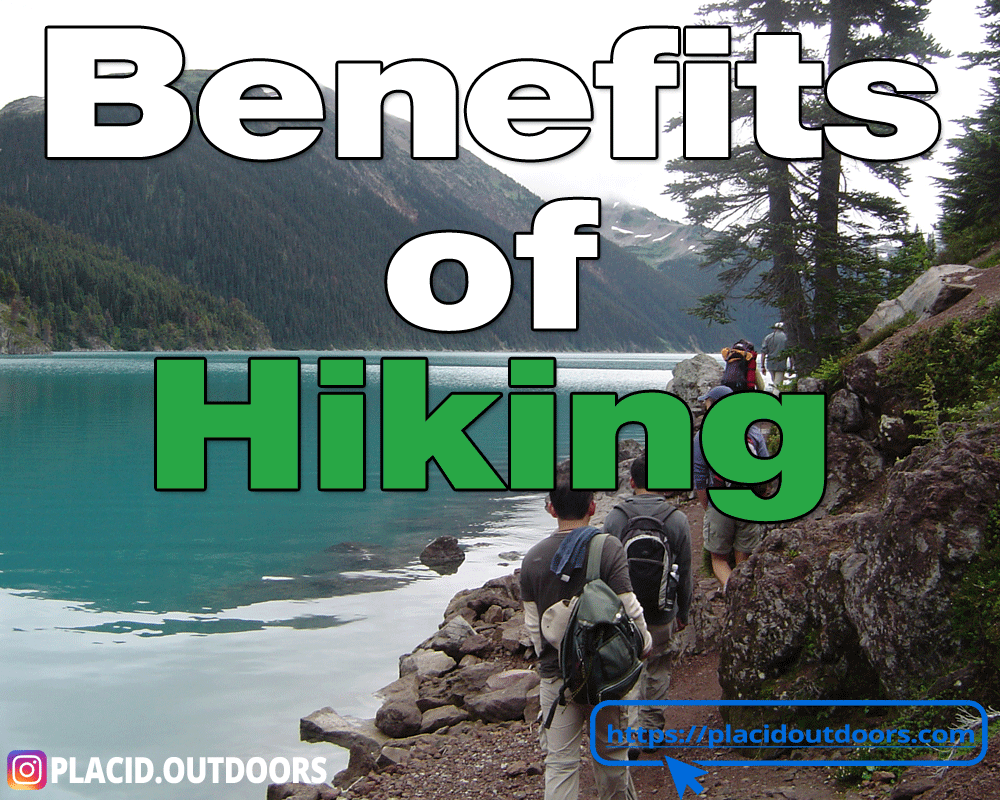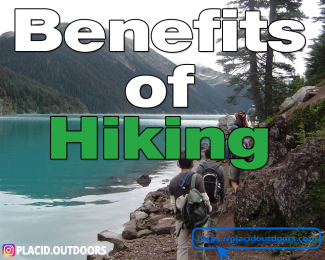The benefits of hiking for a healthier and happier life


There’s nothing like a good hike in nature, away from the frantic rhythm of a crowded city, to help you recharge your batteries and improve your physical and mental health. While any kind of workout has its share of benefits, hiking may just be an all-around activity for a healthier mind and body.
Several studies have shown the many benefits of hiking that go from staying fit to improving your cognitive abilities. As opposed to hitting the gym, the simple fact of being outdoors has a range of benefits that make this activity not only an excellent cardiovascular workout but a great way to combat stress, anxiety, and even depression.
Here are the main reasons why you should hit the trail instead of hitting the treadmill.
It’s good for your heart and lungs
You probably already know that any kind of cardiovascular activity is good for your heart as it increases the levels of oxygen in your blood as well as the blood flow to your muscles and lungs. According to Dr. Aaron L. Baggish1, associate director of the Cardiovascular Performance Program at Massachusetts General Hospital, hiking is an excellent cardiovascular exercise that makes your heart work harder because of the uneven terrain. The inclines and declines on hiking paths require more effort from your cardiorespiratory system than walking on a flat surface. This will strengthen your heart and increase your lung capacity, leading to a lower risk of developing cardiovascular disease. Furthermore, the extra effort doesn’t necessarily mean you’ll be more tired after a hike. On the contrary, the fact that the activity takes place in nature makes it more enjoyable and according to a 2017 study2 published in Plos One Journal, this can lead to a decrease in the perceived fatigue.
It helps strengthen your muscles
While walking3 is a great activity to stay fit and healthy, hiking will allow you to use your muscles in different ways. An article published in the Journal of Experimental biology4 analyzed the differences between hiking and walking on an even surface. The study found that climbing and descending hills and walking on uneven trails requires additional effort due to the greater muscle co-activation as well as a wider range of movements and increased balance. Hikes can of course vary in difficulty, and you can find many easy hikes, but you’ll rarely walk the whole time on a flat surface. The increased variety of movements helps strengthen your core muscles, glutes, quadriceps, hamstrings, and hips. Because hikes can be quite challenging for your knees and ankles, a bit of good advice is to start with easy trails and increase the difficulty as you gain more muscle strength and stability.
Hiking can boost your mood
The fact of being in nature alone is a great mood booster for many people. While this may simply be an informal though widespread belief among hikers and nature lovers, quite a few studies are supporting the thesis that being in nature makes people happier and calmer. Hiking has been shown to decrease stress, anxiety, rumination, and depression. A study conducted at Stanford University5 compared a walk in an urban setting versus one in a natural setting. The discovery was that the latter significantly reduced rumination, meaning the habit of focusing on negative thoughts which in turn can lead to depression and other mental illnesses. Furthermore, the 2017 Plos One study6 also found that mountain hiking may lead to a greater sense of calmness and reduce anxiety.
It may help you lose weight
If you’re looking to lose some extra weight, hiking might be just as good an activity as going to the gym. As we mentioned previously, walking up and down a hill or mountain activates your muscle and is an excellent aerobic exercise that can help you shed those extra pounds. According to the CDC, hiking burns more calories than activities like walking, dancing, or bicycling. Furthermore, because you’re, supposedly, enjoying the natural scenery all around you, it will likely feel less like a workout and more like a pleasurable activity.
It can improve your cognitive abilities
Hiking, like any other aerobic exercise, can improve your cognitive abilities, in particular your memory. Studies have shown how even a simple aerobic exercise like walking can increase the hippocampus volume7. This area of the brain plays a significant role in learning and memory and with age it tends to shrink, potentially leading to impaired memory and an increased risk for dementia. Hiking in nature has the added benefit of improving your spatial memory. As opposed to working out in a gym, hiking requires attention and memory to help navigate your surroundings and find your way around. Basically, you are not only training your body but also your brain. By constantly challenging your memory you may delay cognitive decline.
Hiking can help increase creativity
This last one may come as a surprise but hiking in nature can also increase your creativity and problem-solving abilities. A study conducted in 2012 tested higher-order cognitive skills in people who had been exposed to a natural setting for a significant period of time (4-6 days) and noticed a 50% increase in performance as opposed to the pre-hike group8. Another study on Danish creative professionals found that being in nature led to increased creativity and new ideas9. While the exact reason why being in nature makes us more creative is not clear, according to some studies this may be due to the fact that in nature our mind is free to wander and find new perspectives.
So, if you are looking for an activity that will keep both your body and brain fit and will also make you happier and more stress-free, hiking can be an excellent choice. Grab your hiking boots, pack your bag, and go fill your lungs with fresh air. Maybe turn off the phone as well and take in all the beauty and peace of nature.
2. https://journals.plos.org/plosone/article?id=10.1371/journal.pone.0177719
3. https://www.ncbi.nlm.nih.gov/pmc/articles/PMC3098122/
5. https://www.pnas.org/content/112/28/8567
6. https://journals.plos.org/plosone/article?id=10.1371/journal.pone.0177719
7. https://www.ncbi.nlm.nih.gov/pmc/articles/PMC3041121/
8. https://journals.plos.org/plosone/article?id=10.1371/journal.pone.0051474
9. https://www.sciencedirect.com/science/article/abs/pii/S1618866715000138
Comments
0 Comments
Commenting not available yet
Popular Articles
The benefits of hiking for a healthier and happier lifeHow to bring water on a run
Day Hiking Essentials
How to Organize Your RV Trailer
Getting Started With Trail Running
How to clean a tent that smells
How to Clean Your RV During COVID-19
How much food should you pack for a 1-2 day backpacking trip?
How to choose a hiking tent
Ultralight Backpacking Tips